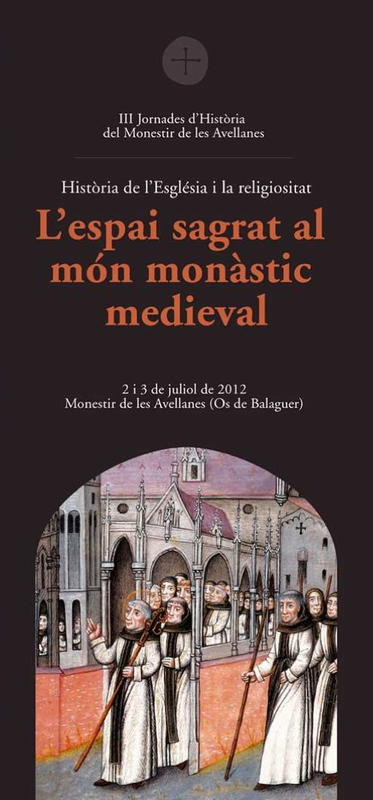More than fifty people, scholars most of them, gathered there this year to put some thoughts together about the concept of sacred space in the Middle Ages. Two days of really compelling papers went by awfully fast. The first -and intense!- one consisted of four sessions devoted to the beginnings of christian monachism, the political side of sacred spaces, monastic architecture and the non-liturgical space. The second one included three more sessions on the gendering of sacred spaces, mendicant piety and sacred landscapes and also a guided visit of the actual monastery of Les Avellanes.
The topics covered a vast chronological period, from the first monastic proposals and rules to the early modern age. Some of them were controversial, for instance the questions posed by prof. Julian Luxford's paper on our conceptions of space itself or the stimulating suggestions of prof. Anne Müller's reconstruction of a 'heaven on earth' within the cloisters. Some of them suggested new words, such as the 'soundscapes' of prof. Kurt Villad Jensen's communication, and some looked in the eye at the vocational root of monasticism and the privileged space monasteries became for women, leaving them to themselves in a sort of spirituality without male mediation, according to prof. Blanca Garí's paper.
Too many to mention and most of them thrilling, the papers fostered debate within and without the sessions in an invigorating and friendly environment that rose to its climax during the medieval dinner, assessed and presented by prof. Antoni Riera -simultaneously and painstakingly translated by this unworthy member of ARDIT!!- or the concert at the cloister by candlelight under a beautiful full moon.
Thanks to the outstanding job of prof. Karen Stöber, who made us all feel at home, and to the scientific assessment of both her and prof. Janet Burton (both of them also responsible for the great project Monastic Wales) this meeting was a total success and proved right the theory that people working and thinking together can accomplish great things.
Finally, a heartfelt thank-you to prof. David Austin who presented us with an insightful vision of medieval thought and, with his powerful voice and the powerful words of a Welsh XIVth c. poet, took us for a moment back in time.
Don't miss it next year!!
Delfi Isabel Nieto

 RSS Feed
RSS Feed
